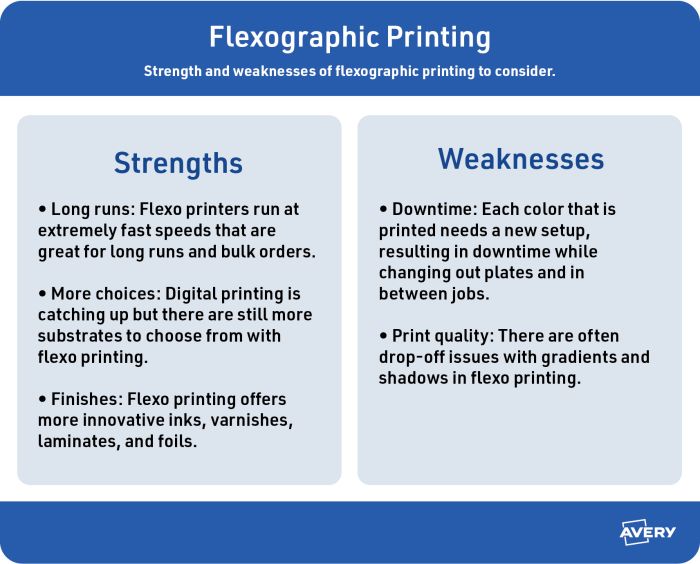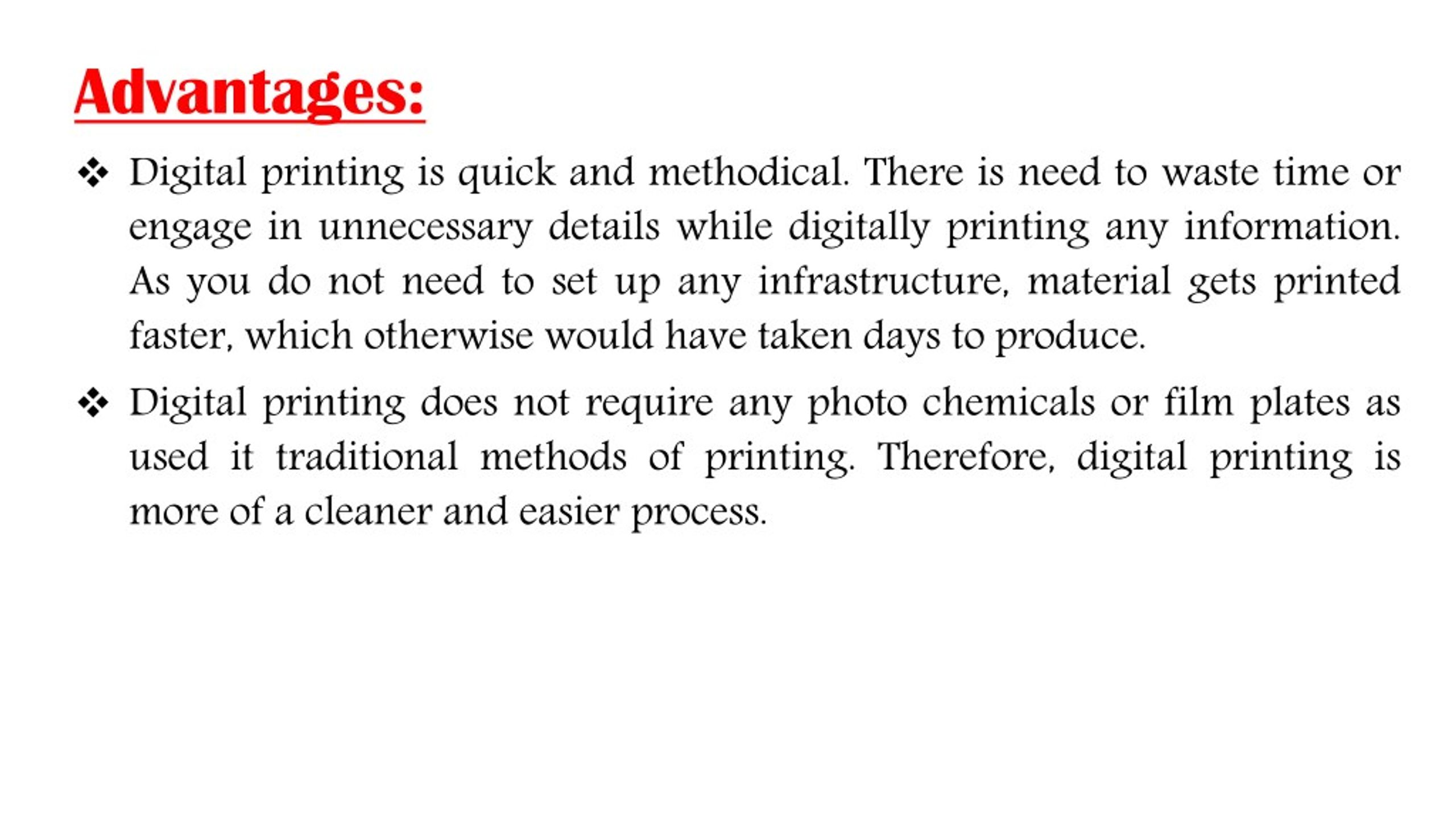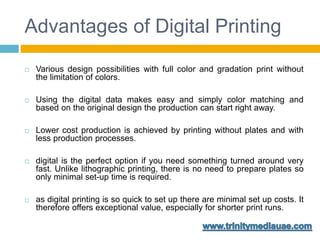Not known Factual Statements About Digital Printing
Table of ContentsGet This Report about Digital PrintingThe Facts About Digital Printing RevealedA Biased View of Digital PrintingNot known Factual Statements About Digital Printing Some Ideas on Digital Printing You Need To KnowLittle Known Facts About Digital Printing.
Variable information printing, such as direct mail with personalized codes and addresses, is preferably matched for electronic printing. Digital fast printing just needs four actions of style, evaluation, printing and binding to get whatever done. Digital quick printing has an unrivaled advantage: print on demand.According to PMMI, digital printing enables brands and suppliers to react quickly to consumer needs while boosting the supply chain, lowering warehousing cost and waste, and enjoying faster time to market. That all noises great, however just how does this innovation do all that? The significant differentiator of these innovations is that there are no set up costs and no plates with electronic printing.
8 Simple Techniques For Digital Printing
According to Wikipedia, the best distinction between digital printing and traditional techniques such as lithography, flexography, gravure, or letterpress - Digital Printing is that there is no need to replace printing plates in digital printing, whereas in these analog printing techniques home plates are repeatedly changed. This causes quicker turnaround time and reduces cost when utilizing electronic printing.
Digital printing is very flexible, so it's easy to make modifications to the package layout promptly. It all goes back to the plates.
A lot more supply can suggest more waste down the roadway. With standard printing techniques, short-run printing is just not feasible. Since a wonderful layout can make or break your item, electronic printing constantly produces high-grade, clear and vibrant graphics each time. Digital printing on flexible pouches includes the brilliant, dynamic, and precise graphics that virtually bid customers to connect and touch them.
Digital printing is the process of printing digital-based pictures directly onto a range of media substratums. There is no requirement for a printing plate, unlike with offset printing. Digital files such as PDFs or desktop posting documents can be sent out directly to the electronic printing machine to print on paper, photo paper, canvas, material, synthetics, cardstock and various other substrates.
Some Known Questions About Digital Printing.
According to PMMI, electronic printing allows brands and manufacturers to react promptly to client needs while boosting the supply chain, reducing warehousing price and waste, and appreciating faster time to market. That all sounds fantastic, but just how does this modern technology do all that? The significant differentiator of these technologies is that there are no set-up fees and no plates with digital printing.
According to Wikipedia, the best distinction between digital printing and conventional approaches such Check This Out as lithography, flexography, gravure, or letterpress is that there is no demand view website to change printing plates in digital printing, whereas in these analog printing techniques home plates are repeatedly changed. This causes quicker turnaround time and decreases price when utilizing electronic printing.

Digital Printing for Beginners
With standard printing techniques, short-run printing is simply not possible. Due to the fact that a fantastic layout can make or break your product, electronic printing consistently produces top quality, clear and colorful graphics each time.

According to PMMI, digital printing enables brands and manufacturers to respond quickly to customer demands while improving the supply chain, lowering warehousing price and waste, and taking pleasure in faster time to market. That all noises excellent, yet just how does this technology do all that? The major differentiator of these technologies is that there are no set up my latest blog post charges and no plates with digital printing.
The Single Strategy To Use For Digital Printing
According to Wikipedia, the best distinction between digital printing and conventional methods such as lithography, flexography, gravure, or letterpress is that there is no demand to change printing plates in digital printing, whereas in these analog printing techniques the plates are repetitively changed. This causes quicker turnaround time and decreases cost when using electronic printing.
Digital printing is extremely flexible, so it's simple to make modifications to the package layout rapidly. It all goes back to the plates.

The Digital Printing Statements
Digital printing is the process of printing digital-based photos directly onto a variety of media substratums. There is no demand for a printing plate, unlike with balanced out printing. Digital data such as PDFs or desktop posting files can be sent out directly to the electronic printing press to print on paper, image paper, canvas, material, synthetics, cardstock and various other substrates.